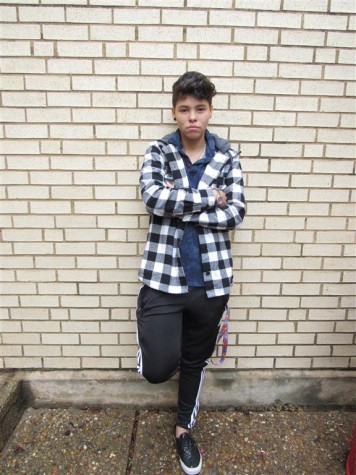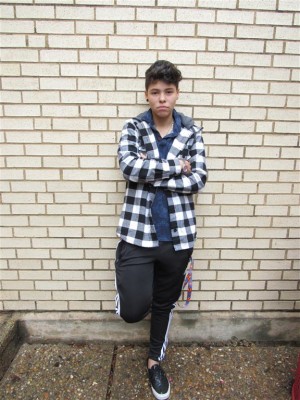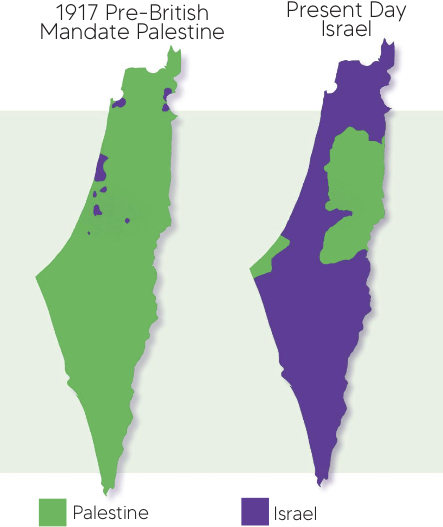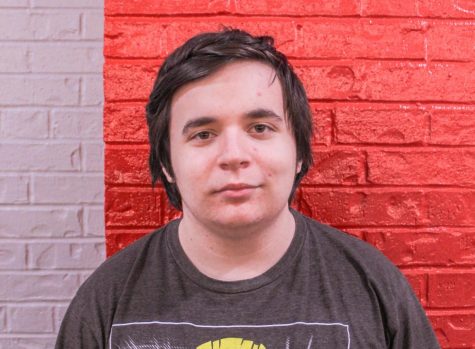Moving from Moldova
November 18, 2015
Sophomore Ecaterina Prodan thought that war in her home of Moldova was only a rumor.
This past summer, the 17 year old was getting ready to go out with her friends in her Eastern European country when she heard her mother call her in from another room.
“Come, you have to see,” her mother said. Motionless, they stared at the TV and watched as the news revealed what they had both feared. It wasn’t just a rumor. War was coming.
The two remained silent. They knew what this meant. It was no longer safe to stay in their country.
The conflict between Russia and Ukraine was nothing new to Prodan. She had seen the signs and heard the stories. She knew that those against Russia would make their hatred evident.
“When you would go to Ukraine, take a bus or something if they would see the bus comes from Russia… they would stop and start shooting people,” Prodan said.
She remembers that as tension boiled between the countries, citizens feared for their own safety.
Because Moldova borders Ukraine, Moldovans worried that violence would spread to their own communities. Talk of war lingered among the population. Some moved out of Moldova, while many lost their jobs due to businesses closing down.
“They’re not even hiding that war is coming,” Prodan said.
The day the two decided to move, the mother spoke to Prodan’s aunt, who lived in Texas. With her help, they planned the move. Devastated that she had to leave, Prodan immediately thought of her friends. She planned to keep the news from them until after they went out together.
“I didn’t tell them that night, I couldn’t,” Prodan said. “I knew how they were going to react.”
For Prodan, her friends were like her family. She knew the hardest thing about leaving her home country would be leaving them behind.
Prodan still struggles with her homesickness. Having been an ESL teacher for 15 years, Jane Trkay can see the effect the move has had on Prodan.
“You can tell when she walks in the door, and looking at her face that she’s having a bad day or that she’s missing her friends,” Trkay said.
On her last night in Moldova, she threw a going-away party with her closest friends. While the group recalled their favorite memories together, Prodan struggled to calm herself down. Unable to ward off her feelings of anxiety, she suffered an asthma attack and was rushed to the hospital. The next morning, her friends visited her. Despite the circumstances, they joked with
Prodan, trying to remain positive.
“We were talking, and they were like, ‘Hey, we knew you were going to figure out something to stay here,’” Prodan said.
While the incident did delay her departure, leaving the country remained inevitable. This September, she was due to leave Moldova. On her flight to America, Prodan couldn’t stop thinking about home.
“The only thing I had in my mind was that I would do everything that I could to come back as early as possible,” Prodan said. “I think about it almost every day now.”
Trkay says Prodan has been open about her experiences, talking freely about her homesickness and the struggles she’s faced after moving. Prodan also openly talks about her country and the differences between America and Moldova.
“I always encourage that because I love to hear about it,” Trkay said.
Prodan misses her friends daily. Until she’s able to visit, she makes sure to keep up with them by calling them on Skype. Although they keep in touch, Prodan says it’s not the same.
“People there, they know how hard life is, and they would be there for you no matter what,” Prodan said. “I would call my friend at two a.m. and be like, ‘Hey, I need you,’ and he’s gonna be there.”










